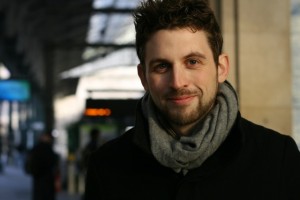
Chris Kavanagh is a DPhil candidate in Anthropology at the University of Oxford. He holds Masters degrees in both Cognitive & Evolutionary Anthropology and Social Anthropology and a Bachelors degree in Study of Religions. His research interests focus on East Asian religions, ritual behaviour and the bonding effects of shared dysphoria. Presently he is the laboratory administrator for the Centre of Anthropology & Mind in Oxford and a researcher on the Ritual, Community & Conflict project, headed by his supervisor Prof. Harvey Whitehouse at the Institute of Cognitive & Evolutionary Anthropology. Chris is currently away in Japan on fieldwork and is conducting experimental and ethnographic research on the psychological and social consequences of dysphoric and euphoric rituals with the assistance of Prof. Masaki Yuki and his psychology lab at Hokkaido University.
For the past few days I attended the International Association for the Cognitive Science of Religion’s (IACSR) 5th Biennial Conference. The theme this year was focused on addressing the state of the field, 25 years after the cognitive approach to religion (CSR) first appeared (at least in its modern incarnation).
This work is licensed under a Creative Commons Attribution- NonCommercial- NoDerivs 3.0 Unported License.
The views expressed in podcasts, features and responses are the views of the individual contributors, and do not necessarily reflect the views of The Religious Studies Project or our sponsors. The Religious Studies Project is produced by the Religious Studies Project Association (SCIO), a Scottish Charitable Incorporated Organisation (charity number SC047750).